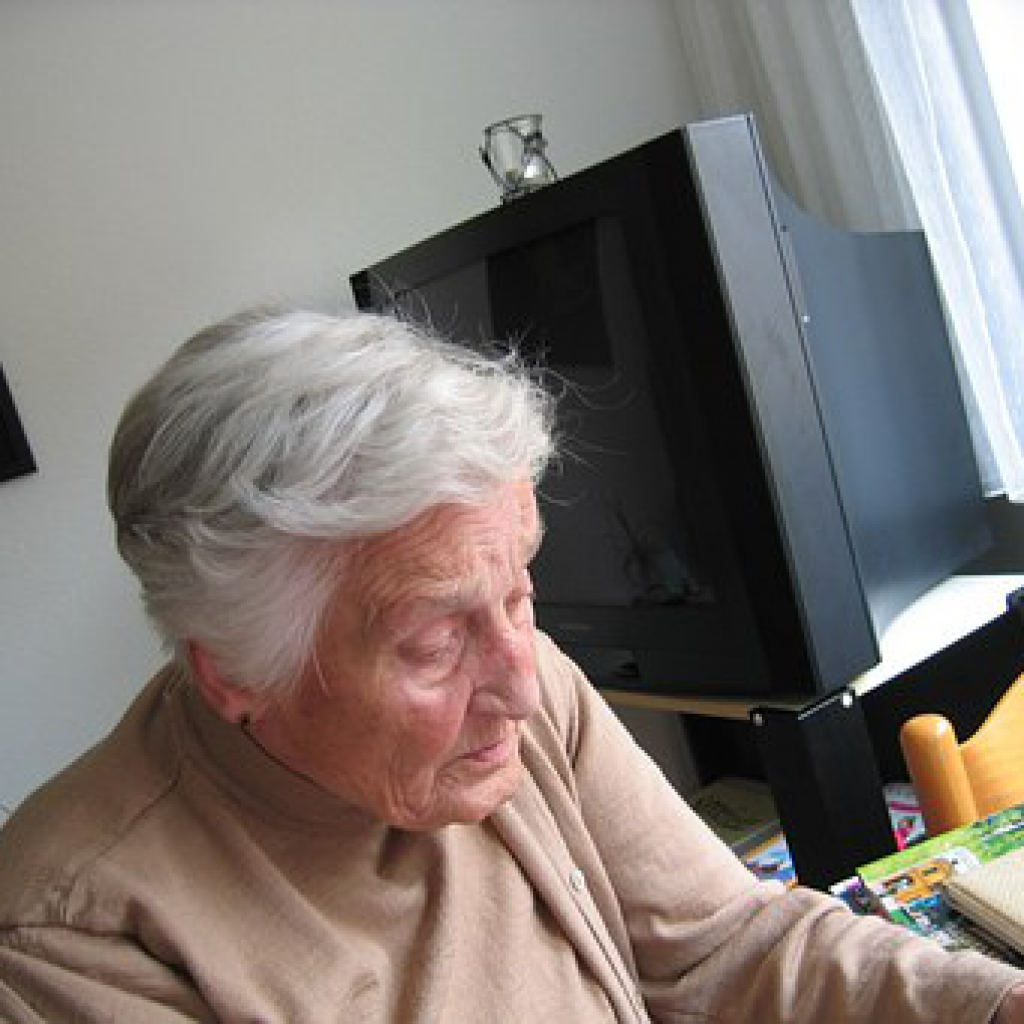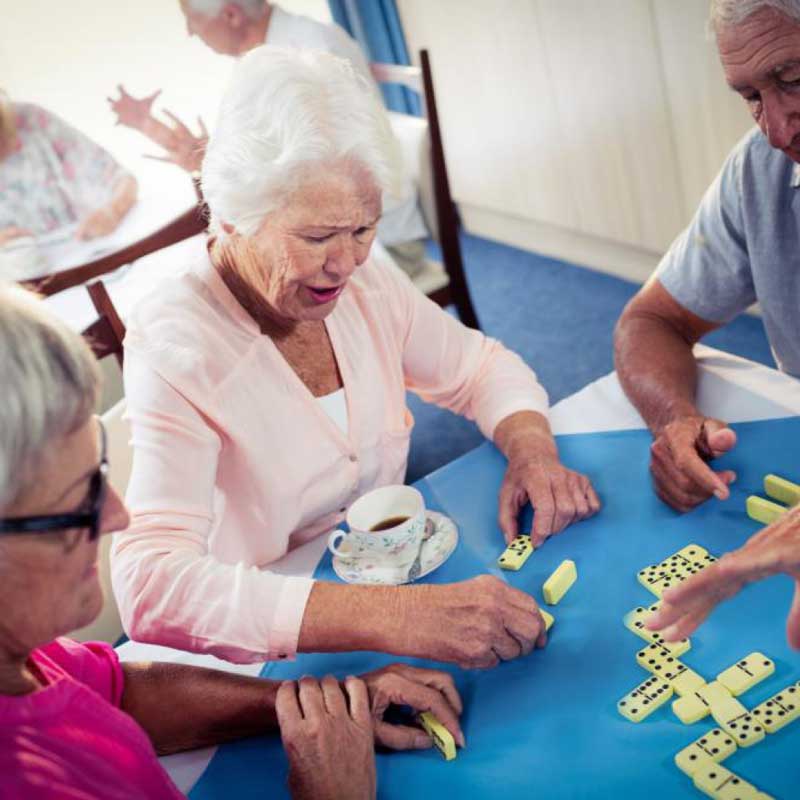Health Guidelines for Seniors
Anyone who has gone through aging or has seen a senior loved one plough through time’s tribunals knows that aging does not happen in a vacuum. It has its ups and downs, and is characterized by many health upheavals. The body goes through significant changes, thus with time, the needs of an aging senior change as well. One can no longer abide by the same health rules that applied to them in their adulthood or youth.
If you or someone you love is aging, it’s best to follow some health guidelines to ensure that the aging process is as graceful and painless.
The Physical Changes that Come with Aging
To start with, one begins losing muscle mass, and the bones start going hollow. This is reflected in the many complications of the musculoskeletal system such as arthritis, which affects 54 million people in the US.
Weight gain and weight loss are both possibilities since as we age, we tend to move about lesser. The lack of physical activity means we’re burning fewer calories, and thus putting on excess weight. On the other hand, weight loss is associated with not consuming the right nutrients in our daily diet, or with chronic illness.
Any of these complications can have potentially long-term and harmful consequences, such as the development of diabetes or heart disease.
However, with the right health guidelines, it’s easy enough to take good care of your senior loved ones.
What to Do to Keep Your Senior Loved One Healthy as They Age
While it’s inevitable that the body will go through changes as someone ages, given below are measures you can take to ensure good health. Always remember that a Body Mass Index (BMI) ranging between 18.5 and 24.9 is healthy for seniors. Similarly, you can gauge weight-based issue by measuring the waist: exceeding 35 and 40 inches for women and men respectively are indicators of subsequent weight issues.

Additionally, follow these guidelines:
- Keep up with a nutrient-dense diet. Low-fat and sugar-free, with more fruits and veggies incorporated into the daily diet
- Control the portion sizes, and balance between excessive consumption and malnutrition
- Chalk out physical activity for the day, even if it’s only for a couple of minutes
- Fresh air is important since it aids in blood circulation
Find a Suitable Assisted LivingCommunity
If you or a senior loved in is in need of professional assisted care, look no further than AvantGarde Senior Living and Memory Care based in Tarzana. We offer customized care for our senior members, which include independent living, assisted living, and memory care.
Get in touch with us today to know more.
Staying Calm while Caring for the Elderly
Growing and aging is a part of life, and many of us have been at stages where we found caring for our loved ones calmly was difficult to do at the same time. Howsoever, tough as it might seem, we’re always anchored by our love and regard for the person in question, and are always looking for ways that can help with the caregiving options.
It’s understandable that keeping calm when faced with the challenge of caring for a senior loved one who might be going through a tough time is difficult, but it isn’t impossible.
It may take additional effort on your part, but you’ll get done with it in the end. To help you out, we’ve put together a list of tips and guidelines:
Plan in Advance
Whether it’s a doctor’s appointment or your visit to an assisted living community near you, it’s best always to plan ahead so that when the time finally comes, you will have lesser stress to deal with. Your parents, having been already told about this appointment, will have plenty of time to plan ahead.
Breathe
Whenever faced with a stressful situation and when you think you’re edging close to an emotional reaction, remember to breathe. Take deep breaths, and focus on rhythmic inhalation and exhalation. This will keep you distracted from whatever is stressing you out and help you stay more focused.
Exercise
Let’s say you’ve had an argument or an altercation with a senior loved one. You can’t, obviously, react to them angrily. What do you do to let steam off? Release endorphins. You can do this best through exercise. We’re not saying you should start doing crunches immediately after an argument with your parents, but at least go out, take a walk, breathe in some fresh air—and you’ll feel the difference.
Don’t Dwell on the Negative

If you keep thinking about the “ifs” and “buts” you’ll never get out of the rut. You’ll be stuck in a restrictive, negative rut that’s no good for you. Most importantly, it won’t help you calm down. On the other hand, what will help you is focusing on the positives. If your parent, in their distress and anger, said something bad to you, you can undo it by focusing on the good things they’ve said and done.
Looking for a Memory Care Option Near You in California?
AvantGarde Senior Living and Memory Care is a Tarzana-based caregiving community that extends customized memory care solutions for its senior members. Contact us today to find out all about the amenities we offer.
The Early Signs of Alzheimer’s
Alzheimer’s is the 6th most fatal cause in the U.S., and affects every 1 in 3 seniors. Of the many forms of dementia, this is the most common, characterized by memory loss and other mental disabilities.
Together, these minor complications become a hurdle in daily life, which is why the disease becomes such a cause for concern. When detected at its later stages, it can be difficult to manage. However, if you can detect the early signs of Alzheimer’s, dealing with it becomes far easier.
And if you’re wondering how you can tell the early signs off, we’ve got a list ready.
Inability to Solve Problems
If you or a loved one you know has begun having problems solving problems—especially if these are very basic issues—then Alzheimer’s might be on the go. Look out for minor problems in daily life, such as calculations and expenses, answering questions coherently, etc.
The Familiar Becomes Taxing
Often, with the onslaught of dementia, familiar tasks become difficult and confusing for the patient. Even the minutest of tasks, such as scrambling eggs or brushing teeth, become unimportant and vanish from the patient’s routine, signaling dementia.
Inability to Determine Place and Time
If you observe that your loved one is having difficulties determining where they are or what time it is, this could be related to dementia. They will also have difficulty making plans and deciding what they want to do in the future because they’ll have lost sense of time.
Loss of Vision
Although the loss of vision on its own isn’t necessarily related to dementia, if you observe that your loved one is losing vision in addition to experiencing any other symptom on this list, dementia could very well be causing it. This could range from not being able to judge distances to having difficulty reading or watching TV.

Losing Things
Although many of us are often forgetful, let’s not forget that if your loved one is frequently losing things at an elderly age, they could be moving toward Alzheimer’s. It could be something as minute as forgetting a key, but that’s the key to your quest.
Forgetting
The most damning of things to happen, especially when a parent is involved, is when they begin to forget you. They might not remember your name or not remember who you are entirely, they might act confused or scared. Whichever the case, make sure you’re not dismissing any signs of Alzheimer’s that you should be aware of.
Looking for a senior living option in California? Choose from the assisted, independent, and memory care options being offered at AvantGarde Senior Living and Memory Care today.
Loving a Parent Who No Longer Remembers Who You Are
Dementia in general and Alzheimer’s, in particular, are difficult to live through, especially when a loved one is afflicted by them. Alzheimer’s is the most damning of all of the types of dementia and this is made evident by the fact that as of 2019, 5.8 million people in the United States are affected by the disease. And while it may, on paper, sound like any other degenerative disease, its after-effects and consequences are long-lasting and deeply hurting for a reason.
Why Alzheimer’s Hurts So Much
Even keeping aside the physical pain that you know your senior loved ones are going through; knowing someone you love is afflicted is painful for you. As a caregiver, and more importantly as a child, you’re wrecked by the knowledge that your parent is going through a phase of forgetfulness.

In the beginning, it isn’t perhaps so bad. They forget little things, can’t do basic math, and maybe lose one set of keys. But it gets progressively worse. Eventually, forgetting time and places transforms into forgetting names and persons. They begin having difficulties performing minute daily tasks, the kind of tasks you saw them do without worry for many years, such as cleaning and cooking.
And the worst blow hits when they no longer remember who you are. You become a presence in their vision, but are never acknowledged with a spark of recognition. It goes without saying that this can be a jarring experience for anyone.
How to Cope with the Experience
It’s tough, yes. But at the end of the day, they’re still your parents who gave birth to you and brought you up. They stood with you all your life, and are now at a stage where they no longer are in control of what fate befalls them. You must remember that this is a situation far beyond your or their control—and that dwelling on negative thoughts and questions won’t help.
What will help is you focusing on the positives instead: ask yourself what is it that you can do to make their situation a little better?
You can give them the care and love they deserve at this point. It doesn’t really matter whether they remember you or not. What matters is that you’re here for them, no matter what. Their brain might have lost the connection, but somewhere in the deepest recesses of their heart, they will know who you are and what you’re doing for them.
They deserve nothing less.
Looking for a Senior Living Community for Your Loved Ones?
AvantGarde Senior Living and Memory Care in Tarzana is a senior care community that offers assisted, independent, and memory care options for senior members. Several amenities are also offered to our community, such as sports, television, and socializing avenues.
Fun Activities That are Loved by Seniors
When we think of old age, we think of rather boring images: people sitting on benches in parks, Forrest Gump Style, and people watching City Lights as they get their medication for the week. This is probably because our understanding of old age makes us want to think that seniors aren’t really interested in anything that’s “fun.”
The truth couldn’t be far from this.
Because at the end of the day, age is after all just a number—and seniors love having fun just as much as we do. Of course, their ages mean that the forms of fun that appeal to them aren’t exactly what interests us: such as memes or Fortnite.
There are other activities that appeal to them, though. And some of these have been discussed in this blog.
Reading
Yes, believe it or not, your senior loved ones come from an era where blogs and podcasts weren’t a thing. They grew up reading text in black and white, such as newspapers and books, and most seniors still love the pleasure of going through a good book. They might have vision loss that stops them from reading, though. This problem can be easily resolved through audiobooks, which are less straining for seniors.

Socializing
You might think that your senior loved ones have isolated themselves and don’t like talking, but you forget that you aren’t exactly the same generation. Your problems are different, your stories are different, and hence your priorities are different. Seniors like talking and socializing, but with people more in line with their own age and generation. An assisted living community where others like them are members is the best place to allow their social side to flourish.
Walking
Our seniors probably weren’t as obsessed with the gym as we are, and their fix for physical activity came mostly from walking. You must remember that this isn’t something they did as part of their regular workout routine but rather opted for because they walked to school, to the nearby marketplace, and so on.
The Television
The television was already making waves when your seniors were as young as you, and they grew up watching some great television (and definitely better songs compared to what we have in store these days). If you think they’re not interested in the television, it’s probably because they’re not interested in what you’re watching.
Looking for a Senior Living Community with Fun Activities?
AvantGarde Senior Living and Memory Care has a range of members from all over California who benefit from the various amenities that the community offers. These include a lot of fun activities, so be sure to get in touch with us today!
Are Your Senior Parents Refusing to Let Go of Bad Behavior?
We know how hard it is to cope with an aging senior loved one, and to see them go through the health complications that come with it. There are times when even the best of us lose patience, and are moved to say or do things that we know we’ll regret within minutes. It’s a tricky, demanding situation, which requires a lot of care and poise on our part.
If you’ve been coping with a senior loved one who has been going through a bad time and don’t know how to handle them at their worst, don’t worry. It’s difficult and demanding, yes, but not entirely impossible to handle them.
We’ve got some guidelines to help you along the way.
Handling Rage and Outbursts
Parents will be parents, and at this tender age, their rage might mushroom into something bigger—something you’re not entirely sure how to handle. First off, you being the younger and responsible individual, need to keep your wits about you.
Do not give in to emotion, and do not retaliate. Instead, try working out what might be causing this outburst. In the case of seniors, it’s usually distress or anxiety that has become far too unbearable. Once you understand the problem, talking them down is easier.
Handling Abuse
In some cases, the senior loved one might even turn on the caregiver and extend emotional, physical, or psychological abuse. This is the tougher case to handle, since you have to bear the direct brunt of an enraged parent, especially one that you’re trying so hard to help.

First of all, we know it hurts. But know that it’s not your parents who are propagating this behavior. It’s probably an illness or a grave psychological misgiving on their part that’s making them do or say hurtful things.
Remember that they’re still your parents. They will listen to you if you tell them how hard they’re making it for you. Don’t make it about them, make it about you—tell them how their abusive behavior makes you feel. No parent, no matter how senior or ill, can see a child in pain. They might not realize that their behavior is hurting you—but once you tell them, they will.
Get Help from Professionals
If the behavior of your senior loved ones has reached a point of no return, perhaps you shouldn’t be taking on the burden alone. It’s best to let the professional caregivers at AvantGarde Senior Living and Memory Care in Tarzana take on the job. Our customized assisted, independent, and memory care living options are sure to help. To benefit from the many amenities being offered and get the best help for your parents, get in touch with us today.
What Sort of Exercises Should Elderly Individuals Do?
We already know that exercise is extremely important for seniors or the elderly, a fact backed by ample research. According to studies conducted, regular and frequent exercise is beneficial for senior citizens in many ways. Some of these include; maintenance of cholesterol and blood pressure, improving bone and muscle health and even controlling conditions like arthritis.
If you’re over the age of 65 and are wondering what kind of exercises you should try out or if you’re looking for exercises for an elderly loved one in your care, we might be able to help!
Exercises That Ideally Suit the Elderly
At AvantGarde Senior Living & Memory Care, we’re quite particular about the physical health of our residents. We connected with professionals at our home, asking them about what exercises suit the elderly best and why. Here’s what we came up with:
Aerobic Exercises and Endurance
Aerobic exercises are extremely important when it comes to improving circulation, cardiac health, cholesterol levels, stamina and metabolism. Aerobic exercise can be categorized as moderate and vigorous. 120 to 160 minutes or aerobic exercise is considered moderate. If you’re partaking in vigorous aerobic exercise, half that amount of time is more than adequate.
Moderate aerobics include activities such as water aerobics, walking, level ground cycling, doubles tennis, volleyball and even mowing the lawn. Vigorous aerobic exercises include focused aerobics, sports like football, cycling in hilly areas and martial arts.
Activities for Balance and Coordination
One of the troubles that come with aging is that our skills of balance and coordination may sometimes deteriorate. Though certain conditions may be hard to reverse, the right exercises can do wonders for an elderly person’s balance and coordination, improving the same considerably.

Activities that are brilliant for this include activities such as yoga as well as dance and even Tai Chi.
Strength Training
Strength training is as important for the elderly as aerobic exercise. Besides helping with weight regulation, stamina and circulation, strength training is also extremely important when it comes to building muscle mass and improving bone strength and overall physical health.
Examples of strength training options that could be worth trying out as a senior citizen include yoga, Pilates, weight training and even manual labor that involves carrying loads.
Winding Down
If you’re trying to formulate a viable exercise regimen, you can incorporate elements from the activities mentioned above. You can choose to focus on activities that address areas of concern to you or make a routine that involves equal amounts of strength training, aerobic exercise and coordination.
In any case, the more you use that body, the longer it will stay healthy and able. If you’re interested in what other amenities we offer at our senior residence and community feel free to connect with us for more information. Happy exercising!
Activities that Senior Living Communities Offer that Help Your Loved Ones Stay Healthy
If you’re searching for a senior living community for yourself or a loved one, there are a number of things you need to look into. These include safety, amenities, access, available space and more. When we talk about amenities, these also include the activities they offer for seniors to partake in. Some of you may be thinking, activities are secondary; this is not so.
Our elderly loved ones need to stay occupied and engaged, just as much as anyone else if not more so. Apart from this, there is adequate research that states both physical exercise and social activity are both extremely important. This is both by way of insuring healthy aging as well as for prevention of age-related disease.
Activities at Senior Living Communities
One of the advantages of a well-established and reputable senior living community is the fact that they organize and provide residents with numerous activities that help them stay healthy. We’re going to give you a sense of some of the things we do for the elderly residents at AvantGarde Senior Living & Memory Care in order to help them remain healthier and happier.
Social Activities
Socializing is extremely important for human health. This is not just so for seniors but for literally anyone. We offer our residents ample opportunities to socialize, whether it is over a TV show or a cup of tea in our common areas, a planned social gathering in the form of a barbecue, movie night or an evening of games for the residents.

Our shopping excursions and other such planned trips also allow for mixing, mingling and making new friends. All this is important as socializing is what helps us feel less lonely and more satisfied.
Physical Exercise
Being an important aspect of health for the elderly, we offer our residents ample space for any needed physical exercise. Our space allows seniors to partake in light aerobic exercise as well as the chance to partake in other physical yet non-strenuous recreational activities such as mini golf or mild aerobics as well as a simple stroll.
Regular and planned outdoor excursions also allow for exercise and physical activity.
Intellectual Stimulation
It is also important to offer activities that do not involve physical strain or social engagement but are more centered on intellectual recreation. We offer our residents games to play such as puzzles and brain teasers as well as intellectually stimulating group activities including games like chess. We also have a VR station for residents who are comfortable with digital recreation.
Winding Down
It is important to make sure that our senior loved ones have access to a well-balanced set of activities and means of recreation to help them stay physically and mentally healthy. If you’re still curious about other amenities that we offer at our senior living home or want to know about our additional facilities and services, feel free to get in touch with us today. Till next time folks!
Mild Cognitive Impairment: Here’s what to look out for
Mild cognitive impairment or MCI, as it is sometimes referred to, is the term used to describe the transitionary period between healthy mental aging and the onset of dementia according to sources. Further research also suggests that MCI is different from normal aging and mental development but is also different from conditions like Alzheimer’s.
Though there are studies being conducted on methods to reverse MCI, it is important to know how to recognize basic symptoms as well as learn how to navigate the condition. This brings us to the question; what to look out for if you suspect an elderly relative or loved one might be developing mild cognitive impairment?
Keeping an Eye Out for MCI in an Elderly Loved One
To make things simple, expert opinion suggests that mild cognitive impairment involves a slight deterioration of basic decision making abilities as well as thinking skills.
Memory Troubles
Here’s what this could look like. A senior loved one or elderly family member who may have previously been quite alert, may slowly start forgetting things. This is not just little things but more relevant information such as important dates, facts, personal information and even names. Other things they may forget could include details of conversations, even those that are recent, and other information that may have not been difficult to recall in the past.
Decision Making
Apart from the symptoms above, the elderly person in question might begin to start making poor decisions. Decisions could include those that come off as rash, impulsive and even overly naive or unreasonable.

Seeking Diagnosis
What’s important is to remember is that unless you’re a trained professional like a specialized doctor, you will not be able to tell whether or not your senior loved one is struggling with MCI for certain. If, however, you do observe what we have mentioned above and the same seems to be chronic, it is important to take your loved one in for diagnosis by a medical professional.
Care for seniors with MCI
If your senior loved one is struggling with MCI, it is advisable to provide them with additional care and support. Remember, MCI is something that can be delayed and even reversed so don’t lose hope.
At the same time, living with MCI can be risky and treatment requires consistency and access to the right professionals. If you do have a senior loved one in your care who is struggling with MCI, you might want to look into our assisted living or even our memory care facilities. We offer seniors suffering from MCI specialized support at our residence including access to trained professionals and 24 hour facilitation.
If you feel caring for a loved one is something you need help with, connect with us immediately and let’s get started.
Are “Brain Games” Effective at Preventing Memory Loss
There has been ample debate when it comes to brain games and how helpful or not they may be. Where there is research that claims brain games have no effect on cognitive improvement in any way, other sources suggest the same can be effective under certain circumstances.
The question however, that many ask, especially those of us who are caring for senior or elderly loved ones is; are brain games effective at preventing memory loss?
The Truth about Brain Games
An article published by the Newyorker online elaborates on how recent breakthroughs have been made which indicate that brain games may be helpful in addressing memory loss and even dementia. We’re going to simplify some of the research in order to explain to our readers how brain games may be helpful as well as the limitations of addressing memory loss with brain games may be.
All Brain Games are not Effective
If you visit the Apple or Google Play Store on your phone or tablet, you can probably find hundreds of computer-based brain games claiming to boost the intellect and whatnot. You must remember that where some of these may actually be useful and effective, all of them aren’t.
Many applications that are presented as brain games are simply mind teasers focused more on entertainment than actual cognitive and intellectual improvement.
Specialized Brain Exercises are Highly Effective
There are certain brain games and exercises that are especially designed by qualified researchers and professionals working closely with conditions relating to aging and the elderly. Many of the activities conducted under our memory care services include such exercises.

When conducted with the support of qualified professionals and done consistently over a period of time with progress being documented, brain games can prove to be very effective.
Brain Games are not a Stand Alone Solution
Simply playing brain games is by no means a standalone solution to address memory loss. Memory loss needs to be addressed on multiple fronts. Other factors that need to be looked after include physical health, diet, levels of exercise and more.
This said, brain games are certainly a great way to supplement other measures you may be taking to counter memory loss.
Winding Down
There is still a lot of research being conducted on how effective brain games really are. Though there is still room for more convincing arguments, there is nothing that proves brain games are either useless or ineffective when addressing memory loss.
If you are struggling with memory loss or someone supporting an elderly loved one who is struggling with the same, we’re happy to help. Feel free to get in touch with professionals at AvantGarde Senior Living & Memory Care for more details on our senior housing, community and other facilities.










